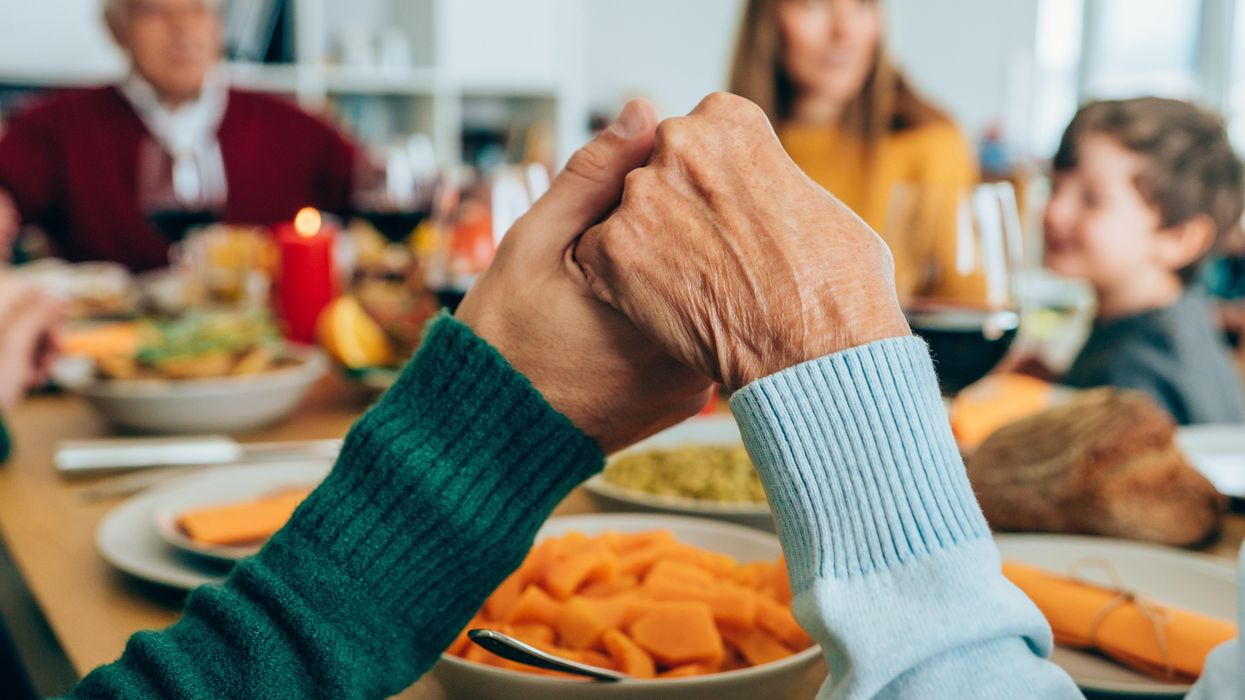Thanksgiving is often portrayed as a minefield of political debates, with an annual surge of guides offering tips to "survive" political conversations at the dinner table. But this raises a question: How helpful are these guides?
Research actually shows that most Americans neither want nor need the abundance of advice. A study conducted just before Thanksgiving 2024 found that while >90% of Americans celebrate Thanksgiving, less than a third planned to discuss the presidential election held earlier that month. Considering Gallup’s finding that “Americans’ attention to national political news is cyclical, usually spiking in presidential election years,” interest in talking about politics may even be lower this year, despite all the political news.Other previous studies also show that relatively few want to talk about politics over the holiday. A 2022 Axios/Ipsos poll found that 77% of Americans believe Thanksgiving is not the right time for political discussions. Somewhat similarly, a 2023 Quinnipiac poll found that only 29% of Americans say they are looking forward to discussing politics at Thanksgiving, compared with less than half who say they hope to avoid it.
One might think, in this era often described as “toxic polarization,” that roughly one-fourth of Americans who are open to talking about politics would negatively impact the Thanksgiving experience. Yet this is not really the case.
According to a 2023 YouGov survey, only 16% of U.S. adults who celebrate Thanksgiving have ever had arguments about politics at Thanksgiving dinner. Only half of those have ever had Thanksgiving ruined by a political argument, a single-digit fraction of the population.
The length of cross-partisan Thanksgivings is also affected, but only slightly. A meta-analysis of Thanksgiving dinner lengths found that politically diverse gatherings lasted just 6% less time than politically uniform ones. That is a fairly marginal impact, reducing a four-hour Thanksgiving by about 15 minutes.
AAA once again predicts a record number of travelers for Thanksgiving. Last year also showed an increase. Politics does not seem to be getting in the way of an increasing number of Americans looking to connect with each other over the holiday. With the government reopened, there are no longer any mandated cuts in domestic flights.
In contrast to usually rare and minor impacts, one can find dozens of Thanksgiving or holiday political “survival” guides online. Here are a couple of this year; if last year is any indication, many more will be published Thanksgiving week. In addition to perpetuating a misleading narrative that these political disagreements are destructive to Thanksgiving, the quality and detail of advice in these guides can vary widely.
Why are there so many guides in the first place, when a large majority of Thanksgivings happen without politics really getting in the way? One clue comes from misperceptions of the people in the other political party. Americans see those in the other party as more eager to talk about politics and more politically extreme than they really are. A survey led by U. Rochester Political Science professor Jamie Druckman found that registered members of a political party overestimate the share of members of the other party who discuss politics frequently by more than 2x, while underestimating the share who rarely discuss politics by about 5x. In addition, More in Common’s Perception Gap research found that Americans think 55% of those in the other party hold extreme views, compared with the 30% who actually do.
It is also possible that the journalists who write about these topics are in social contexts where politics is more salient and contentious. Additionally, those who have political issues with their family and friends may be more drawn to organizations dedicated to improving the US political environment, even though they represent a surprisingly small minority of Americans. A 2022 New York Times / Siena College poll found fewer than one-fifth of Americans said that politics had hurt their friendships or family relationships. An August 2025 Ipsos poll found similar overall results, but with a partisan skew: 27% of Democrats and 10% of Republicans said last year's presidential election had negatively affected their friendships.
Guidance on how to have political conversations is still useful, but it doesn't need to be so focused on Thanksgiving. In such a large country, guidance should follow a “stop, drop, and roll” model, offering at most three memorable pieces of advice. Most adults lack the time, interest, or energy to integrate more into their busy lives. Americans should be reminded of these year-round, not just at one time of year.
James is partial to a call to be SVL (pronounced like “civil”) to share Stories, relate to the conversation partner’s Values, and Listen, based on advice from Stanford sociologist Robb Willer. More Like US has even created a flyer with SVL that can be printed out and visible during Thanksgiving dinner. Another memorable approach is Urban Rural Action’s ABCs of Constructive Dialogue (essentially, Asking the conversation partner for their perspective, Breaking down one’s own view to make it understandable, and Checking one's understanding of their perspective).
Thanksgiving should be a time of unity and reflection. Most Americans do not need to worry if they will “survive” Thanksgiving. Americans can instead thrive, enjoying themselves with friends and family.
James Coan is the co-founder and executive director of More Like US. Coan can be contacted at James@morelikeus.org
Ann Schockett is the co-founder and co-chair of More Like US.
Imre Huss is a current intern at More Like US



















